Publications
Articles, publications, books, tools and multimedia features from the U.S. Institute of Peace provide the latest news, analysis, research findings, practitioner guides and reports, all related to the conflict zones and issues that are at the center of the Institute’s work to prevent and reduce violent conflict.
Money Spent on Peacebuilding is an “Investment”
Money spent on peace is an “investment” that will eventually “mature,” said Congressman John Garamendi (D-CA) at the U.S. Institute of Peace on Oct. 27, bringing both short- and long-term gains to the United States and countries around the world. Garamendi, who served as a Peace Corps Volunteer in Ethiopia from 1966 to 1968, offered his remarks at a USIP event marking the 50th anniversary of the Peace Corps’ founding.
A Democratic, Islamist Tunisia?
Dan Brumberg, Senior Adviser for the Center for Conflict Management discusses the recent democratic elections in Tunisia.
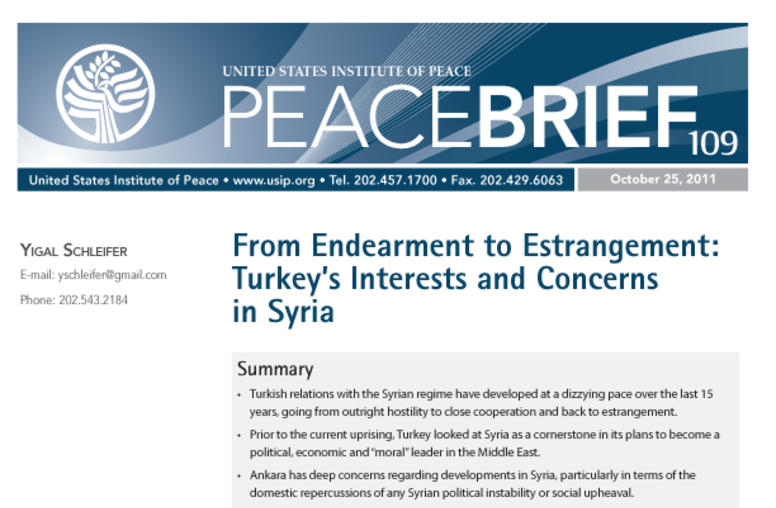
From Endearment to Estrangement: Turkey’s Interests and Concerns in Syria
This brief is part of a series examining the regional dimensions of Syria’s popular uprising. The Institute invited leading experts from the U.S. and the Middle East to identify key vectors of influence Syria’s neighbors are bringing to bear on the conflict, to forecast how the situation there will affect the regional balance of power and to examine how the opposition and the Syria regime are responding to these regional dynamics. This study on Turkey was written by Yigal Schleifer, a Washing...
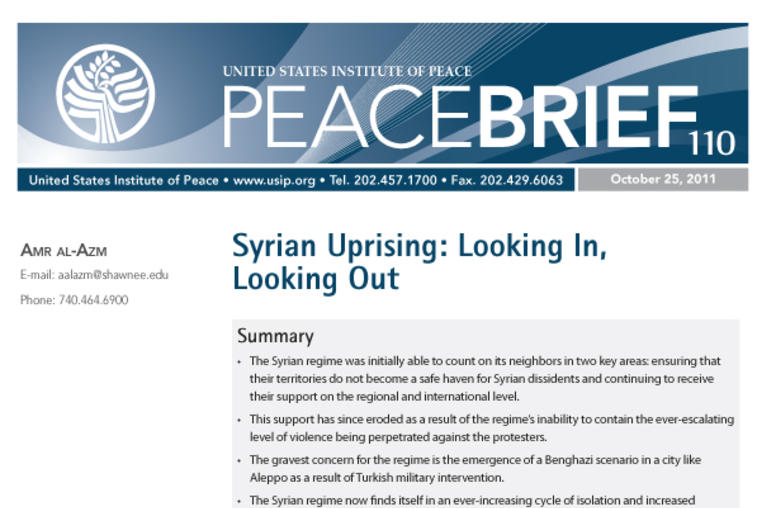
Syrian Uprising: Looking In, Looking Out
Amr al-Azm is an active member of the Syrian opposition and a professor of Middle East history and anthropology at Shawnee State University. This Peace Brief aims to examine the deteriorating relationship between the Syrian regime and its neighbors and the possible emergence of a “Benghazi scenario” involving Turkish military engagement.
Qaddafi’s Death and The Challenges of Building a New Libya
Libyans have reacted overwhelmingly positively to the news of Muammar Qaddafi's death. USIP's Manal Omar discusses what impact his death will have on Libya's transition and future.
NATO Commander Visits USIP, Hears About Field Work in Libya, Afghanistan
Adm. James Stavridis, NATO’s Supreme Allied Commander Europe, spoke with USIP staff about some of USIP’s programs making a difference in conflict zones
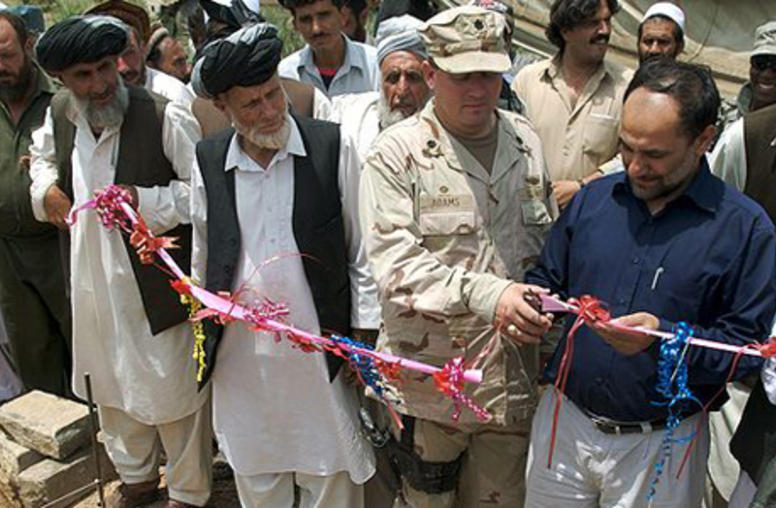
Oral Histories: Provincial Reconstruction Teams in Iraq and Afghanistan
In 2009, USIP was invited to participate in a U.S. government interagency effort to capture and institutionalize lessons learned and best practices from the U.S. experience with PRTs. From 2009-2011, USIP interviewed 200 returning government, military, and NGO representatives who had served in PRTs in Iraq and Afghanistan.
Clinton Visits Tripoli
Robert Perito, director USIP’s Security Sector Governance Center, provides some context for Secretary of State Hillary Rodham Clinton's visit to Libya.
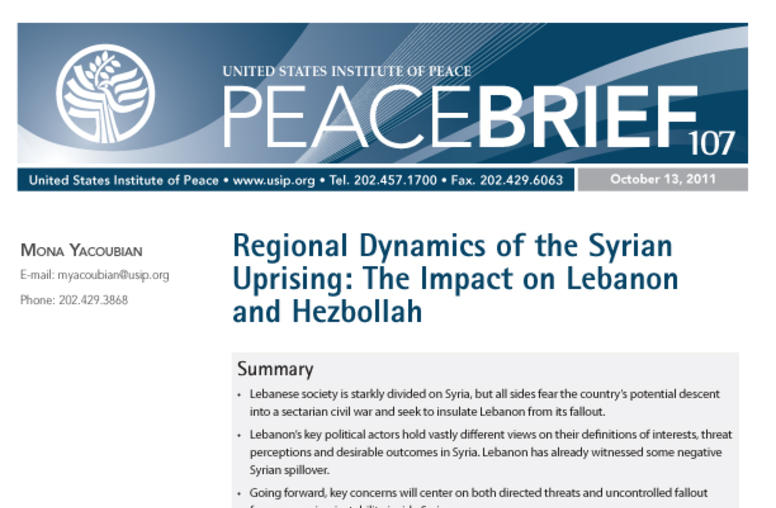
Regional Dynamics of the Syrian Uprising: The Impact on Lebanon and Hezbollah
This Peace Brief is part of a series examining the regional dimensions of Syria’s popular uprising. The Institute invited leading experts from the U.S. and across the Middle East to identify key vectors of influence Syria’s neighbors are bringing to bear on the conflict; to forecast how the on-going conflict in Syria will affect the delicate and volatile regional balance of power; and to examine how the Syrian opposition and the Syria regime are factoring in regional and cross-border dynamics...
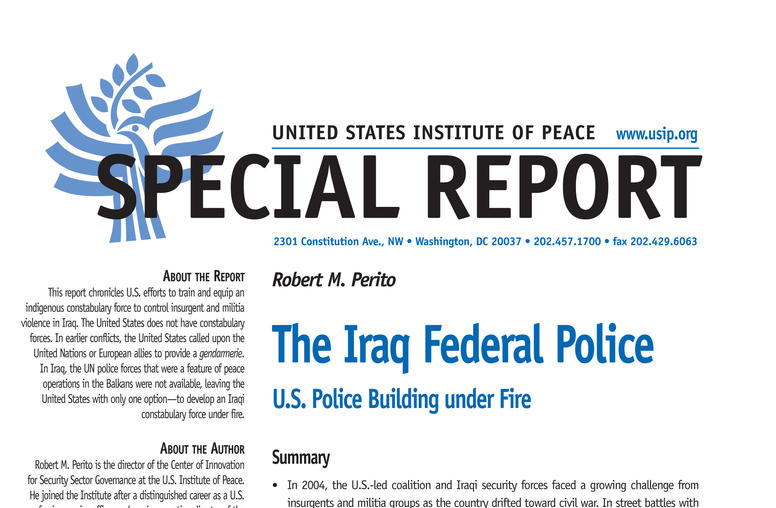
The Iraq Federal Police
In Iraq, the U.S. learned that setting up an effective local constabulary during conflict requires broad agreement on the police force’s roles and mission, a clear division of police and military responsibilities, and role models who can train and mentor candidate officers on their moral obligation to protect society.